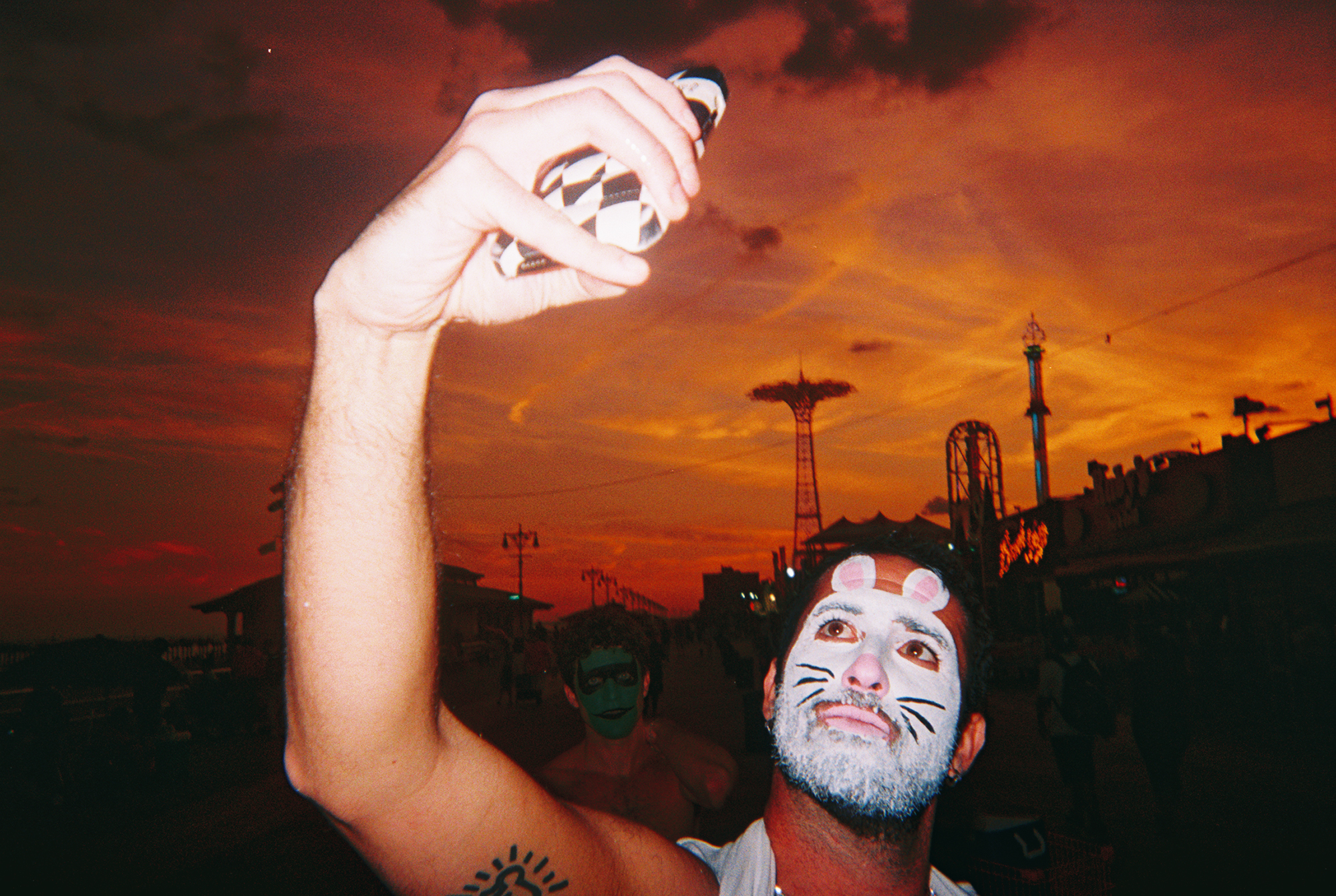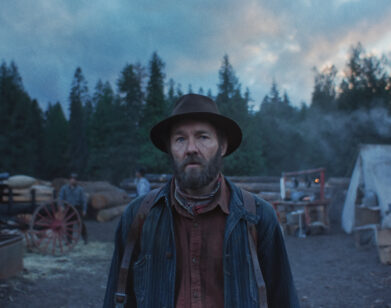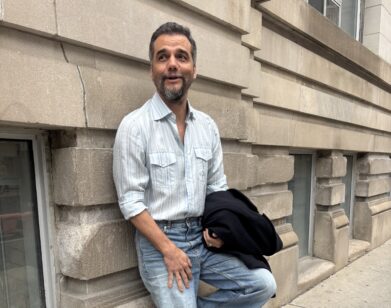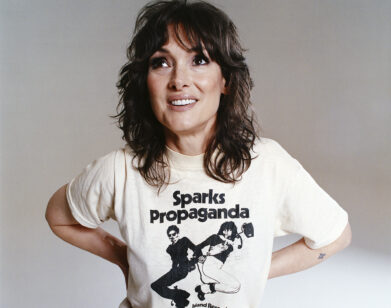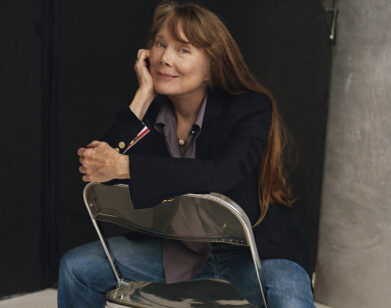MEN
Jordan Firstman Tells Robert Pattinson What It’s Like to Be Gay and Relevant
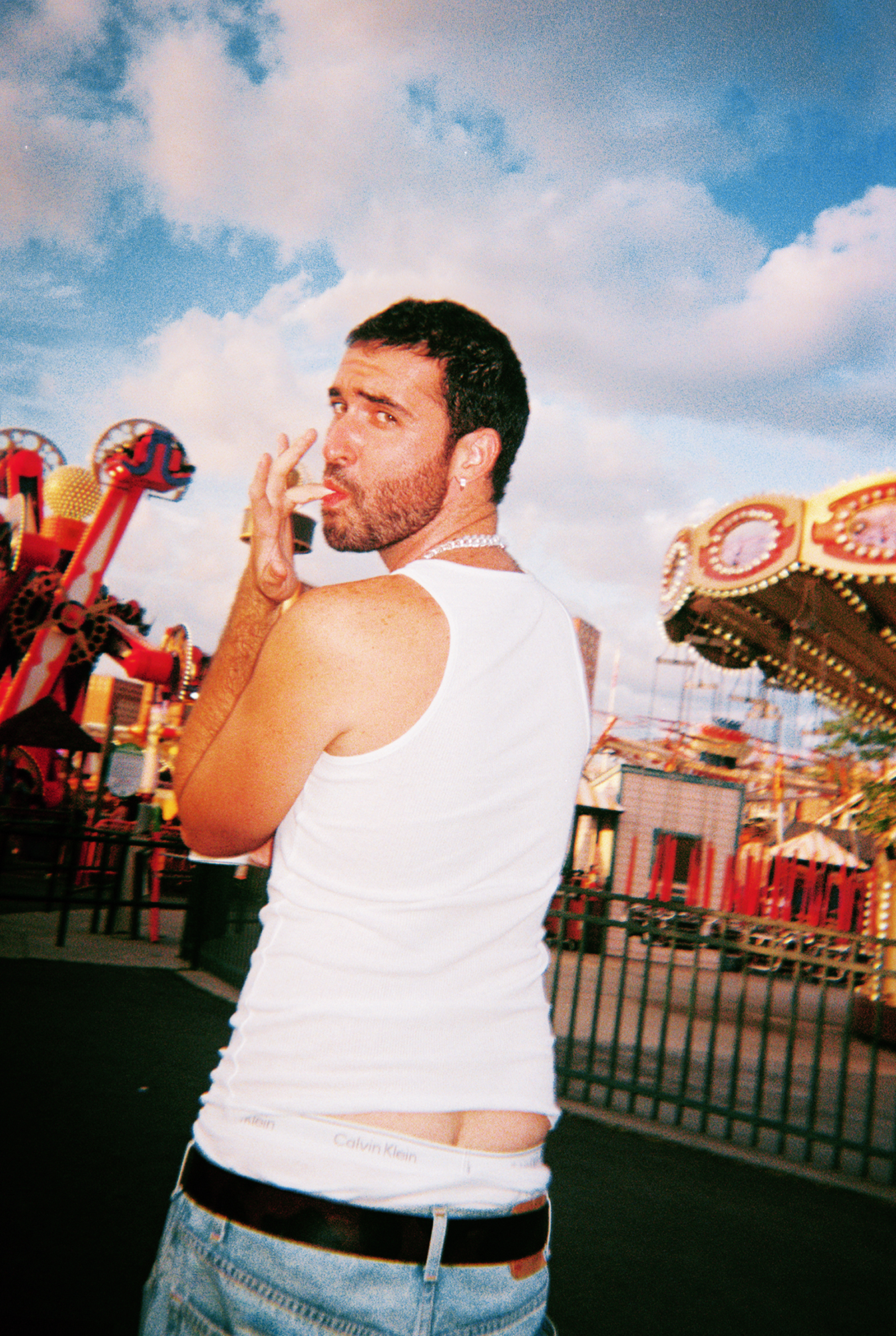
Jordan Firstman is in his movie star era. The 32-year-old writer and comedian got famous by posting during lockdown, mostly in the form of impressions and character sketches on his Instagram page. But talent that big can’t be contained to an iPhone screen, which led Firstman, who was getting bored of social media fame anyway, to his first starring role in the Sebastián Silva-directed Rotting in the Sun. In the sex-and-ketamine powered dark comedy, Firstman and Silva play versions of themselves in a sort-of retelling of how they first met on a gay beach in Mexico. What follows is a dead-on satire of a world where clout-chasing and creativity collide—to reveal any more would spoil the experience (you can watch it on Mubi). One person who loved it was Robert Pattinson, who signed on as a producer through his company Icki Eneo Arlo shortly before the movie’s Sundance premiere. A few weeks ago, he joined Firstman on Zoom to ask about social media fame, courting controversy, and gay sex.
———
JORDAN FIRSTMAN: Hey, what’s up?
ROBERT PATTINSON: How’s it going?
FIRSTMAN: Are you still in London?
PATTINSON: Yeah. I’m so brain foggy. I feel like I’m jet lagged, but I’m not. Are you in L.A.?
FIRSTMAN: I’m back in L.A.
PATTINSON: Is this the first time you’re promoting something in a conventional movie sense?
FIRSTMAN: Yeah. I’ve done traditional press before, but I’ve never had to talk about the same project to 50 different outlets and be asked the same questions over and over again. No one teaches you how to do that.
PATTINSON: I was thinking that this morning while doing my research for this interview, which was looking at your Instagram when I was on the toilet for about five minutes. [Laughs]
FIRSTMAN: That’s the perfect place to look at my Instagram. Looking at shit while you’re shitting.
PATTINSON: [Laughs] But I had noticed over the last few weeks, your enthusiasm and capability of promoting stuff is very different, and I’m curious how you felt about coming from doing stuff on social media, where it’s more inextricably linked with trying to kind of gain virality and stuff, whether the enthusiasm comes from that. Because you see so many actors who will just sit there and literally try to be as boring as possible in an interview, and I think all your stuff is really entertaining. The amount of people who know about this movie because of how you’re promoting it is really interesting.
FIRSTMAN: It’s weird. I got a crash course in marketing myself because of Instagram, because I could see so instantly what audiences responded to and what they didn’t respond to. But it’s weird when I’m doing this, because even Mubi is like, “What are you doing? Stop doing so much.” But I’m like, “I know how to market this a little bit better than you guys.”
PATTINSON: [Laughs] Please stop!
FIRSTMAN: I do think that the way that I’m talking about this movie is at least making my followers want to see it, but the other side of the coin is that I know they want to see my dick and see my naked body, and the movie is so much more than that. I hope they can actually watch it and see what I’m trying to say, because they’re so culpable for the problems I have in my life that are reflected in the movie, and so hopefully they can take some blame for that, too.
PATTINSON: As a percentage of the audience, how many of them do you think are going specifically just to see your dick?
FIRSTMAN: Rob, I’m not saying this to glorify myself, but my DMs, most of the time, are like, “Show me your dick.”
PATTINSON: I think that’s everybody, no?
FIRSTMAN: Yeah, I guess that’s maybe true.
PATTINSON: That’s really, literally not true. [Laughs]
FIRSTMAN: But Instagram is a very sexualized place, and I’m sure actresses, if they look at their DMs, are filled with disgusting, perverted shit. But I think because I do sexualize myself, it leaves the door open for people to say whatever they want to me. I feel uncomfortable with it sometimes, but I also have to take some amount of blame because I have left the door open for it.
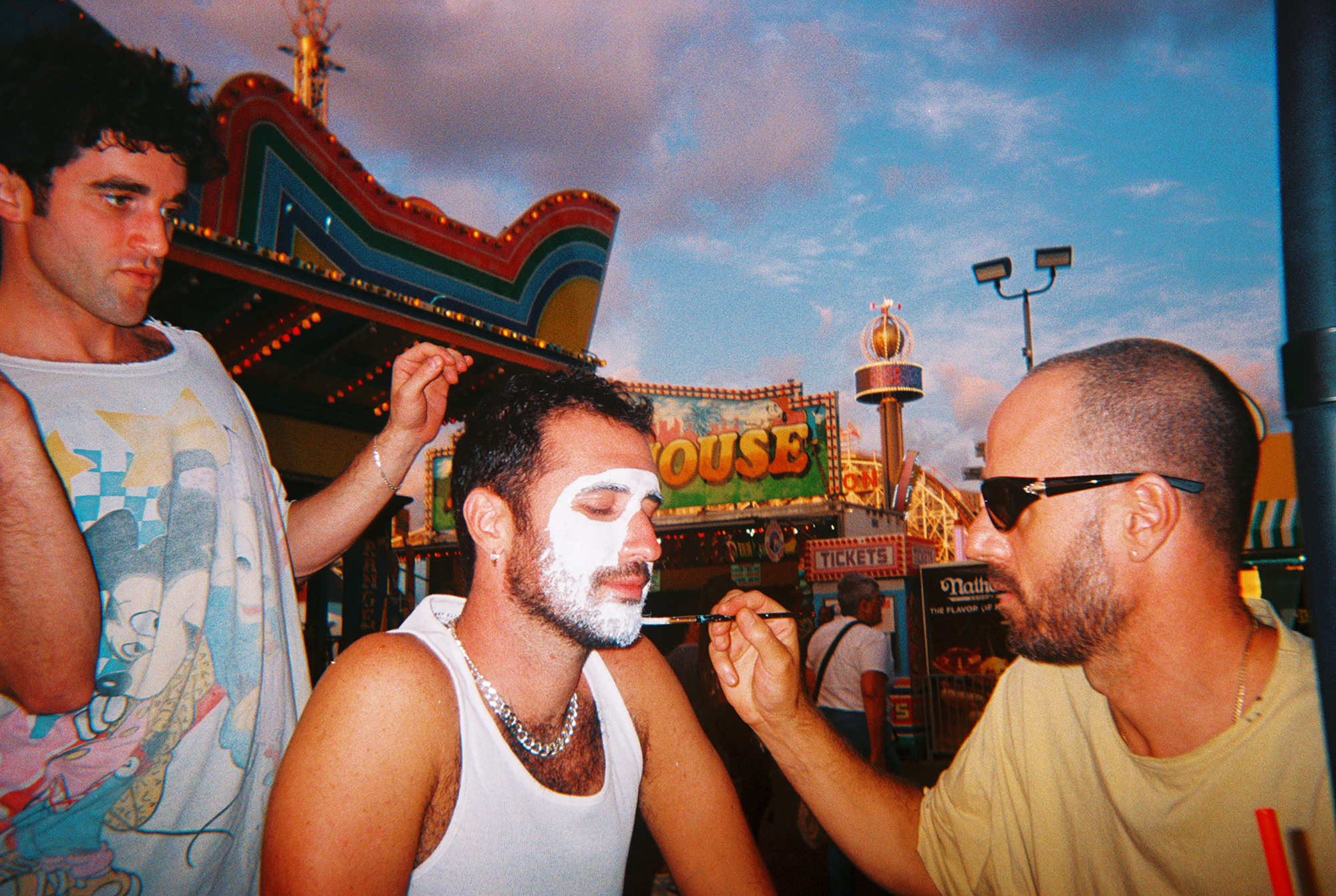
PATTINSON: In terms of you playing yourself, I always find it interesting, because I think it’s impossible. I don’t think people can have enough perception to really understand who they are anyway. It’s almost like they have to be ultra-enlightened to even know. Do you think there’s a different self that you’re portraying in an interview or in your life, or is the character you’re playing in Rotting in the Sun a sort of self that you’ve constructed specifically for the movie?
FIRSTMAN: No, I think it’s a character that has been developing my entire life. But isn’t that what a personality is?
PATTINSON: Exactly, that was about to come out of my mouth.
FIRSTMAN: You have these experiences in your life that shape who you are, and then you also have to build different personalities to interact with different types of people. The way I talk to you is a little bit different than how I talk to my gay friends who I party with.
PATTINSON: An interesting thing I’ve been thinking about—at least I think it’s interesting—is that when you’re watching the movie, there’s a cynicism that’s pushed to the forefront, about social media and about people in the arts, but it has this weird converse effect of feeling really warm afterwards. You end up liking everyone in it a lot. That was my first impression.
FIRSTMAN: I think you’re more well-adjusted than probably some of the audience. I think it’s a gay thing, too. Gays do not come out of the movie with a warm feeling. They feel sad and attacked.
PATTINSON: Really?
FIRSTMAN: Yeah.
PATTINSON: That was the other question I was going to ask. Do you think this is a gay movie?
FIRSTMAN: Sebastian hates that people are calling it a gay movie, and it’s not. When people ask me what the movie is about, I say it’s about this time period, and this time period is filled with so many contradictions and so much confusion and pain. And Sebastian’s a gay man, so he’s writing about his experience in his own life, and one facet of it is gay, but then the other facet is suicide, and this maid he has—played by Catalina Saavedra, who deserves an Oscar by the way—
PATTINSON: She actually does.
FIRSTMAN: —this artistic life that feels so self-indulgent. So I would say the movie is about six to eight things, and gay is one of them. But gays are really relating to it also because there has been a lot of suicidal, depressed artist representation in film, but there hasn’t been a lot of gay representation in this way that feels very true to the culture of right now. That’s why it’s hitting differently. So no, I would not call it a gay movie, but I would call it a movie that captures the modern gay experience, as well as a lot of other things.
PATTINSON: Do you think it’s a dangerous movie? I don’t really know how to put it. It’s controversial in some ways, but at the same time, when I saw it, my first thought was, “This feels mainstream to me.” How controversial do you think it is?
FIRSTMAN: To quote Harry Styles, the movie does feel like a movie. That’s kind of what I like about it, and I think that’s why people are finding it a little bit more mainstream. But it really depends on who you show it to, because we’re people that are in culture, and you have your finger on the pulse of every even smaller subculture, which is something people may not know about you. In getting to know you a little bit, your references are that of a 25-year-old, very-in-the-know person.
PATTINSON: When we were doing the tastemaker screenings, we were specifically inviting people from all over the place, and everyone seemed to have the same reaction. No one seemed to come out of the screening like, “I’m really upset by that.” You would think it would be more shocking to someone who’s going into the theater, not expecting to see anything that they’re about to see. I don’t quite understand how you’ve managed to balance that tone so well.
FIRSTMAN: People are shocked at how not shocking it is. They’re confused within themselves. They’re like, “Wait, I just saw all of these dicks, and I saw an actor sucking a tattooed cock, and I didn’t feel anything.” I think it normalizes the sex, but also normalizes the micro-observations about very dangerous subjects. Even Catalina’s character not being a bright person, that’s the most controversial thing in the movie to me. I think any other movie would’ve been like, “This poor Mexican maid. She’s only a victim. She’s done nothing wrong. Only society has been bad to her.” And it’s true. All the odds are stacked up against her, and she doesn’t really stand a chance in this world, but she also continuously makes mistake after mistake and cannot figure anything out.
PATTINSON: You don’t feel like you’re being manipulated by the filmmakers, and it feels extremely honest. Okay, wait. Where are my notes? My questions are so boring because I kind of know the answers already. I was saying, “How do you maintain your energy at such a high level?” but it’s like, I know what you’re going to say. [Laughs] I was going to say, “Where’d you get your body confidence from?” But then I think that’s slightly offensive.
FIRSTMAN: [Laughs] No, I’m interested in how that reads to you. On the last day of my first TV writing job, one of the head writers was like, “Jordan, I have to tell you, I have never met someone so confident and so insecure at the same time, and I taught at UCB for eight years.” It killed me. My mom was visiting the next day, and I told her and started crying. I think I’m pretty open about my insecurities, but to the public, maybe it’s seen as confidence or arrogance. But the body stuff definitely comes from as much a place of insecurity as it does confidence, because I feel like I need to prove that I’m confident in my body, so I show it.
PATTINSON: Again, it’s like the tone of the whole movie. It doesn’t look like you’re trying to make the audience think a certain thing, it just is the way it is. This is kind of interesting. What is the difference for you about being sex-positive and being a sex addict? Where is the line for you?
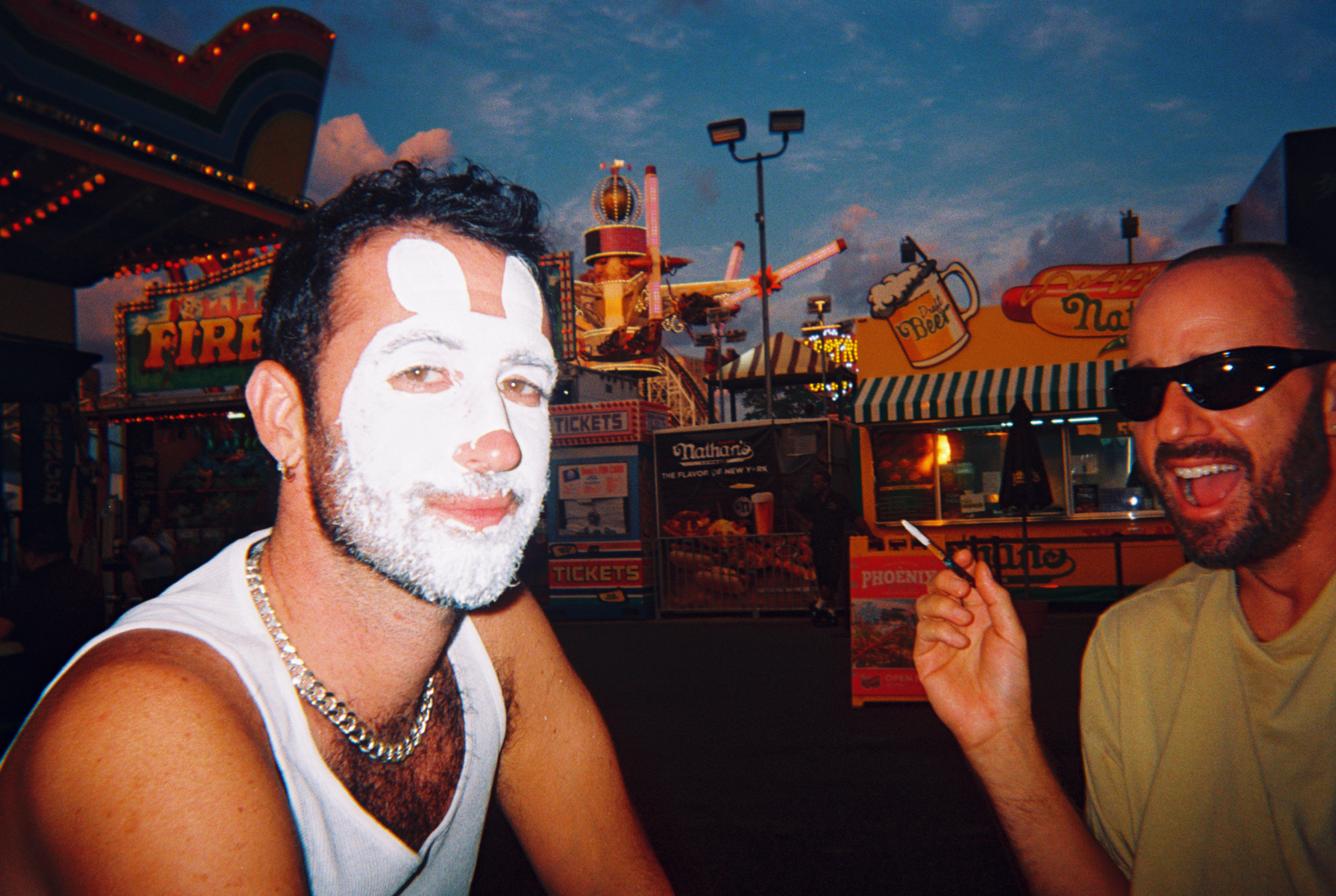
FIRSTMAN: Oh my god, wow. I think the line is how you feel. You know the second you feel good about something and the second you feel bad about something. I toe that line with many other gay men. Sometimes I’ll be at a party and I’ll be surrounded by people fucking, and I’ll be like, “This is utopia. This is what being a man is. This is what the Greeks were doing. This is fabulous.” And then sometimes you’ll leave a sexual experience and feel so deeply depraved in a bad way and feel so gross about yourself. I think that is the gay experience, navigating sex. We are going against these heteronormative structures, but then because there’s no system that has taught us how to live any other way, we have to kind of find it on our own, and that comes with a lot of trial and error. And in the gay experience, a lot of error. I would say 80 percent error and 20 percent trial. I look around the gay community right now, and I think this is represented in the movie, but I see a lot of darkness, a lot of dissociation, a lot of using sex and drugs as a means to cope.
PATTINSON: You think that’s something that’s changed recently?
FIRSTMAN: I’ve noticed a difference since the pandemic. I joke sometimes that you take sex away from gays for a month during the quarantine, and they’ll make up for it in the next six years. But I think gays cope in different ways than other people. Also, drugs have become way trendier than they were. My first couple years partying in L.A., there was coke around, you would do some molly, but it was like you would party and then take a little break for the drugs. And now I look around and it’s like you do drugs and take a little break for the party. I’m not thrilled about it and I don’t like parts of myself that I see getting trapped in these cycles, but I’m hoping it’s a phase. It’s starting to be talked about inside the community, too, so hopefully we can band together and figure out that situation.
PATTINSON: The way you talk about your life, it always sounds so wild, and then you’re incredibly professional. You seem really, really sensible all the time. I can’t blur the two impressions together. It’s really strange. Even when we went to the screening in London, I was like, “Everyone’s so sedate, sitting in total silence.” I was expecting it to be absolutely mental. [Laughs]
FIRSTMAN: Yeah, during the screening, I’m doing doses of G to get ready to do my Q&A, but I can really remain pretty lucid. It’s either my gift or my curse.
ROBERT PATTINSON: And always looking healthy. It’s bizarre. [Laughs]
FIRSTMAN: Let’s pray it stays that way. I want to talk about something you said. It was on your birthday, and you were like, “Jordan, you’re so talented, but I have no idea what the fuck your career is going to look like. I have no idea where there is a place for you in society.”
PATTINSON: [Laughs] I did not say that!
FIRSTMAN: Yes you did.
PATTINSON: [Laughs]That’s horrible! That was going to be one of my questions!
FIRSTMAN: “Where the fuck is your place in society?”
PATTINSON: I mean, that’s kind of how I look at everything. I’m constantly thinking that you’re just going to spend the vast majority of your life unemployed and desperate and kind of feeling like you’re a total failure. I think that’s just what life is. [Laughs]
FIRSTMAN: If Robert Pattinson is saying that, there is no hope for anyone to ever be satisfied.
PATTINSON: I think it’s just part of it.
FIRSTMAN: I think most people are quietly resigned to their lives, though. There’s a specific type of sickness that show business people have, this never-being-enough syndrome. But I don’t think it is everyone in the world. There are some people that are content.
PATTINSON: I don’t know, I feel like you’re specifically at a maximum most of the time you’re doing a job and you’re employed for three months. That’s the most stressful thing in the world.
FIRSTMAN: You had another really good question. I could tell in your eyes.
PATTINSON: Oh god. It’s annoying because I keep trying to ask questions about social media, but I literally don’t even know what to ask because I don’t have any engagement myself, so I can’t imagine the process of you making any of that stuff. I think it just sort of hatches out of you like an egg. Do you think you’re approaching doing a movie differently to how you’re doing a sketch on social media? I can’t imagine it’s that different.
FIRSTMAN: I guess it’s a little bit the same, but I do have a thing where once I’m over something, the energy does not let me do it anymore. I can’t record a video because I just don’t care. So if my conviction isn’t there, it fully shows. I even look at the movie and it’s like, I want to do well and I’m so into this so I just go full force. That was how I was feeling with the videos that first year. And I look at those videos, even the ones that I don’t think are funny anymore, and I’m like, “Damn, I was committed.” And I’m not committed to them anymore. Sometimes I still have really funny ideas for the videos, and I go to record and I’m like, “I’m just not there. I can’t do it.” Have you ever had to do a project that you were just so not into at all?
PATTINSON: Not really. I have a deep, deep fear of humiliation. And also, you sort of know it’s down to you. You can say it’s a shitty script or the director’s a dick or blah, blah, blah, but at the end of the day, no one’s going to care about the reasons. You’re the one who everyone’s going to say is lame. And the vast majority of people will say you’re lame even when you tried your best.
FIRSTMAN: Yeah. Even when you’re amazing in it.
PATTINSON: Yeah. Do you care more or less about being relevant doing a movie or doing Instagram stuff?
FIRSTMAN: I’ve learned a lot about being relevant from the internet. I made an ins and outs list at the end of the year, and one of my outs was being consistently relevant. I think you can have a moment of relevancy every two years, and that’s the best way to do it. The people that are relevant all the time, it’s no way to live. You’re going to burn out and die early. The pandemic was my first taste of relevancy, and it’s such an addictive drug. I’ve done almost every drug, and nothing hits like relevancy. But when it goes away, the withdrawals are crazy. I think it’s learning how to take those moments in the in-between and not go crazy. It’s easier said than done, and I still feel really uncomfortable. The last year and a half, I feel like I’ve been on a low with the relevancy, and it’s been challenging.
PATTINSON: It’s always a difficult thing to know how to not saturate everything, or how long to wait. And then sometimes, if you wait too long, and then try to make a big splash, if it doesn’t work, then you’re in a very, very dangerous place afterwards.
FIRSTMAN: I love how prepared you are. There are a lot of questions and they’re very good. You’re better than most journalists I’ve talked to, I will say.
PATTINSON: Actually, I suddenly have a lot of respect for journalists. I literally do not know how to do this. Do I have any new ones? I’m running out. Fuck.
FIRSTMAN: I feel good. Do you feel good?
PATTINSON: I actually wrote quite a lot of notes, and I’m looking at them and I’m like, “What are you even trying to say?” I’m looking at one of them now, it’s not even a question. It’s just a long, convoluted stream of consciousness thing, which I don’t even understand what point I’m trying to make.
FIRSTMAN: I’m sure it’s smart, though.
PATTINSON: Somewhere deep in the recesses. But yeah, I’m so happy people are connecting to the movie.
FIRSTMAN: I’m so happy you’re a part of it. It’s so random, but also makes perfect sense.
